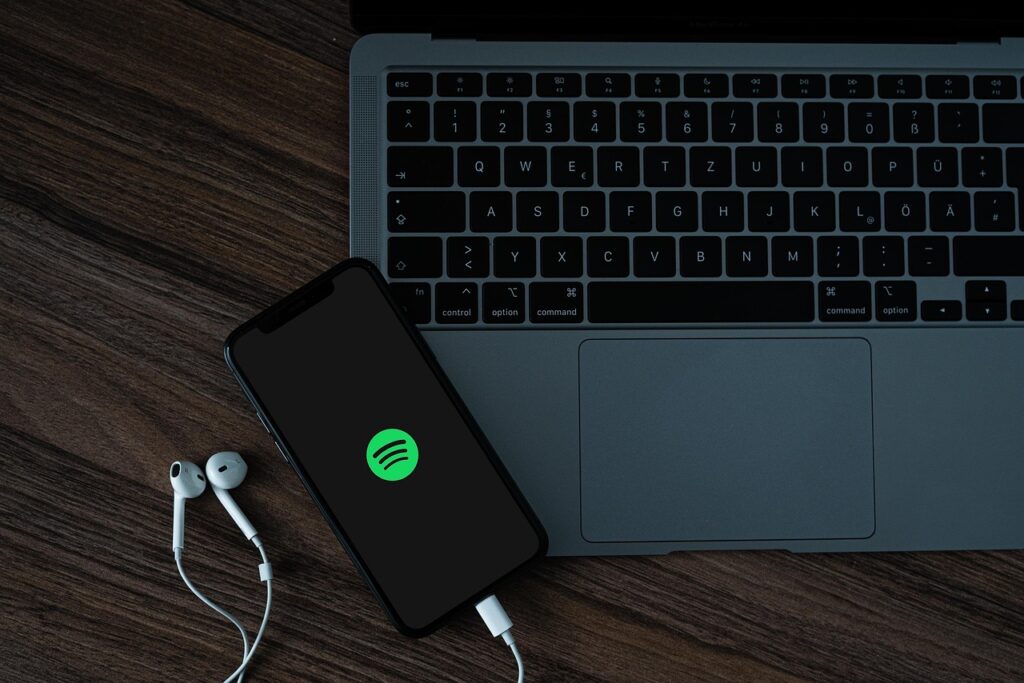Users searching for ADHD medication like “Adderall” on Spotify are encountering more than just health advice or comedy shows. Among the results are dangerous fake podcasts. These pages link to unauthorized websites selling addictive drugs such as Oxycodone and Xanax—without a prescription.
A recent investigation uncovered dozens of fraudulent podcast listings. The findings have raised serious concerns about Spotify’s safety measures and its ability to moderate content effectively.
Fake Podcasts Lure Users to Illegal Pharmacies
Search terms like “Adderall” and “Xanax” often return shows with names like “My Adderall Store” or “Order Xanax 2 mg Online.” These are not legitimate podcasts. Instead, they feature short, robotic audio clips that promote illegal drug sales.
Descriptions in these episodes include links to unverified websites. Some even claim FDA approval and promise delivery without needing a prescription.
Spotify took down 26 such podcast pages after being contacted by journalists. However, similar listings reappeared within hours. This highlights how difficult it is to manage abuse on open platforms like Spotify.
Tech Experts Warn About AI-Generated Abuse
Experts say AI is making the problem worse. Lauren Balik, a tech analyst, urged Spotify CEO Daniel Ek to take swift action. Katie Paul of the Tech Transparency Project explained that AI voice tools allow scammers to create hundreds of fake shows quickly.
One example is the podcast “Xtrapharma.com,” which hosted several synthetic episodes. They promoted drugs like Xanax and Percocet, claiming users could buy them easily—without medical approval.
Serious Health and Legal Risks
Ordering drugs from unauthorized websites is both risky and illegal. U.S. regulators have repeatedly warned about fake pills and overdose dangers. In 2011, Google was fined $500 million for hosting similar ads from illegal pharmacies.
Despite stronger rules from platforms like Reddit and Facebook, drug-promoting content keeps slipping through. Spotify’s open publishing model is a weak point. Critics argue its enforcement hasn’t caught up with the scale of abuse.
Parents Demand Action Amid Teen Overdoses
The issue is personal for many families. Some parents lost their children to overdoses involving pills bought online. They are calling on tech companies to do more to protect young users.
Sarah Gardner, CEO of the Heat Initiative, stated:
“Anywhere user-generated content is allowed, someone will try to sell drugs. The real issue is what companies do to stop it.”
Spotify Tightens Moderation After Public Backlash
Spotify has policies that ban content promoting illegal drug sales or spam. It uses AI and human moderators to catch violators. Still, the system has flaws.
In the past, Spotify faced backlash over Covid-19 misinformation on “The Joe Rogan Experience.” In response, the company launched a Safety Advisory Council and acquired Kinzen, a moderation tech firm. Despite these moves, watchdogs say more must be done.
The Problem Is Still Growing
Researchers found over 20 fake podcasts linked to shady pharmacies in the top results for “Xanax.” Similar shows showed up under terms like “Vyvanse,” “Codeine,” and “Percocet.”
Some shows used coupon codes and promised quick shipping. Many featured no listener reviews, making it hard to know how many people they reached. Their thumbnails often displayed pills, and the robotic hosts repeated marketing slogans.
Spotify is under pressure to better protect users from fake podcasts promoting illegal drug sales. While the company has taken steps, experts warn that stronger safeguards are needed to fight AI-driven abuse.
This issue underscores the urgent need for platforms to rethink content moderation in the age of automation and misinformation.
